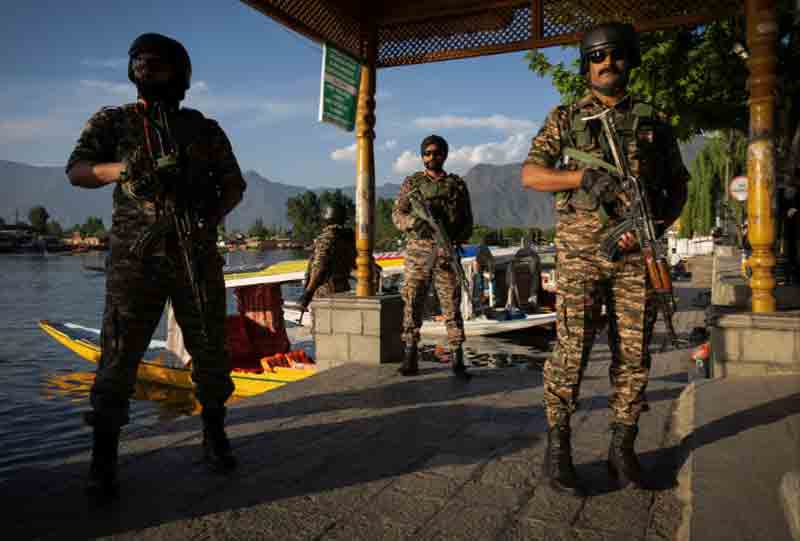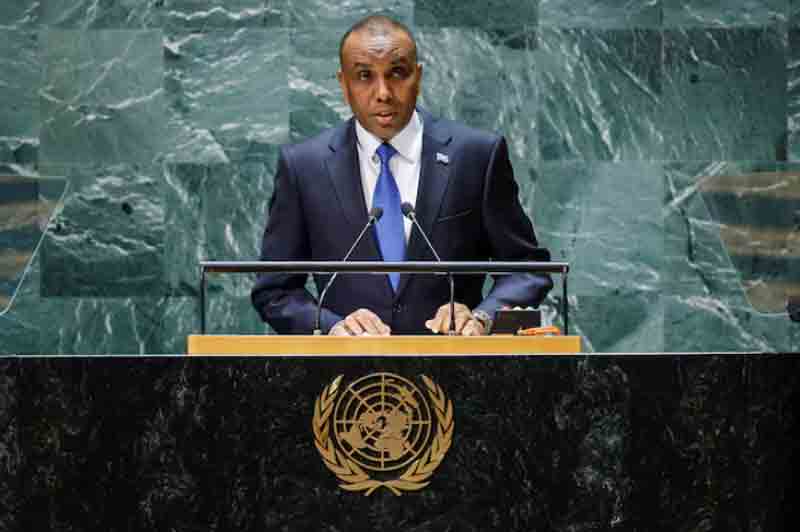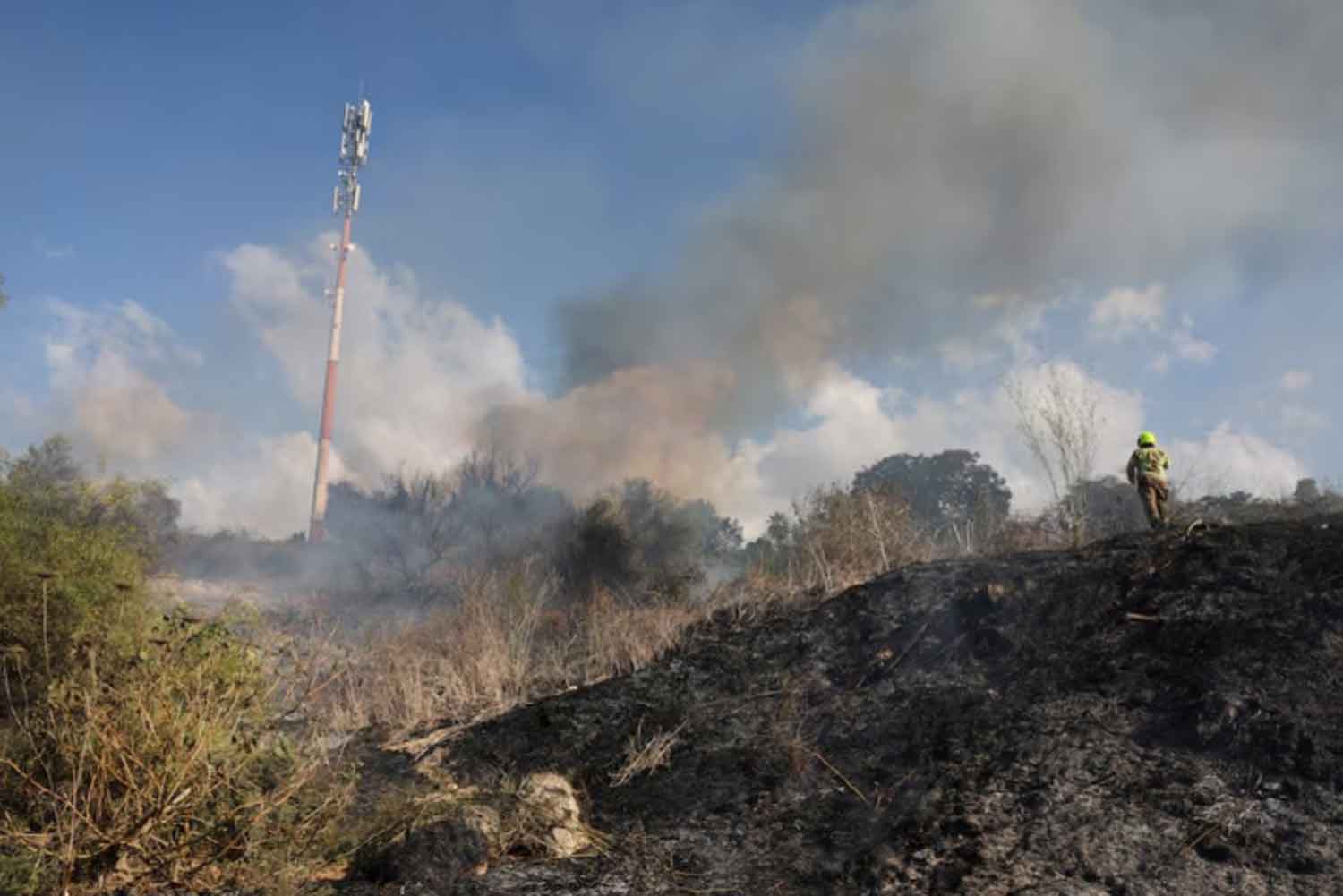On Sunday, the U.S. State Department announced that it is engaging with both India and Pakistan, urging them to pursue what it termed a ‘responsible solution’ amid escalating tensions following a recent Islamist militant attack in Kashmir.
Publicly, the U.S. has shown support for India in the aftermath of the attack but has refrained from criticizing Pakistan. India has accused Pakistan of being behind the April 22 attack in Indian-administered Kashmir, which resulted in over two dozen fatalities, while Pakistan has denied any involvement and called for an impartial investigation.
A spokesperson for the U.S. State Department stated, ‘This is an evolving situation, and we are closely monitoring developments. We have been in contact with the governments of India and Pakistan at various levels.’ The spokesperson further emphasized that the United States encourages all parties to collaborate towards a responsible resolution.
Additionally, the spokesperson reiterated Washington’s support for India, condemning the terrorist attack in Pahalgam, echoing sentiments expressed by President Donald Trump and Vice President JD Vance.
As India becomes an increasingly vital partner for the U.S. in countering China’s growing influence in Asia, Pakistan continues to be an ally, although its significance has waned following the U.S. withdrawal from Afghanistan in 2021.
Michael Kugelman, a South Asia analyst based in Washington and contributor to Foreign Policy magazine, noted that India is now a much closer ally to the U.S. than Pakistan, which may concern Islamabad, as any military retaliation from India could lead to U.S. support for India’s counter-terrorism efforts rather than opposition.
Kugelman noted that due to Washington’s engagement and ongoing diplomatic initiatives regarding Russia’s conflict in Ukraine and Israel’s situation in Gaza, the Trump administration is facing numerous global challenges and may not prioritize India and Pakistan during the initial phase of rising tensions.
Hussain Haqqani, a former Pakistani ambassador to the U.S. and a senior fellow at the Hudson Institute, echoed this sentiment, indicating a lack of U.S. interest in de-escalating the current situation. He remarked, ‘India has long-standing concerns about terrorism originating from across the border, while Pakistan believes that India aims to undermine its sovereignty. Both nations tend to escalate tensions periodically, but this time, there appears to be no U.S. inclination to intervene.’
The region of Kashmir, claimed entirely by both India and Pakistan, has been a historical flashpoint, with both countries having engaged in wars over it. Indian Prime Minister Narendra Modi, representing a Hindu nationalist agenda, has pledged to pursue the perpetrators of the recent Kashmir attack ‘to the ends of the earth,’ asserting that those responsible will face severe consequences.
There have been increasing calls from Indian politicians for military action against Pakistan. Following the attack, both nations implemented a series of retaliatory measures, including Pakistan closing its airspace to Indian flights and India suspending the 1960 Indus Waters Treaty, which governs water-sharing from the Indus River and its tributaries.
Additionally, both sides have resumed cross-border fire after a period of relative tranquility. A lesser-known militant group, Kashmir Resistance, claimed responsibility for the attack via social media, with Indian security agencies identifying it as a front for Pakistan-based militant organizations like Lashkar-e-Taiba and Hizbul Mujahideen.
Ned Price, a former official at the U.S. State Department during President Joe Biden’s administration, remarked that although the Trump administration approached this matter with the necessary sensitivity, the belief that it would support India unconditionally could heighten tensions.
He stated, ‘The Trump Administration has expressed its desire to strengthen the U.S.-India partnership — an admirable objective — but it appears ready to pursue this goal at nearly any expense. If India perceives that the Trump Administration will support it unwaveringly, we may face increased escalation and violence between these nuclear-capable neighbors.’
Discover more from Defence Talks | Defense News Hub, Military Updates, Security Insights
Subscribe to get the latest posts sent to your email.





